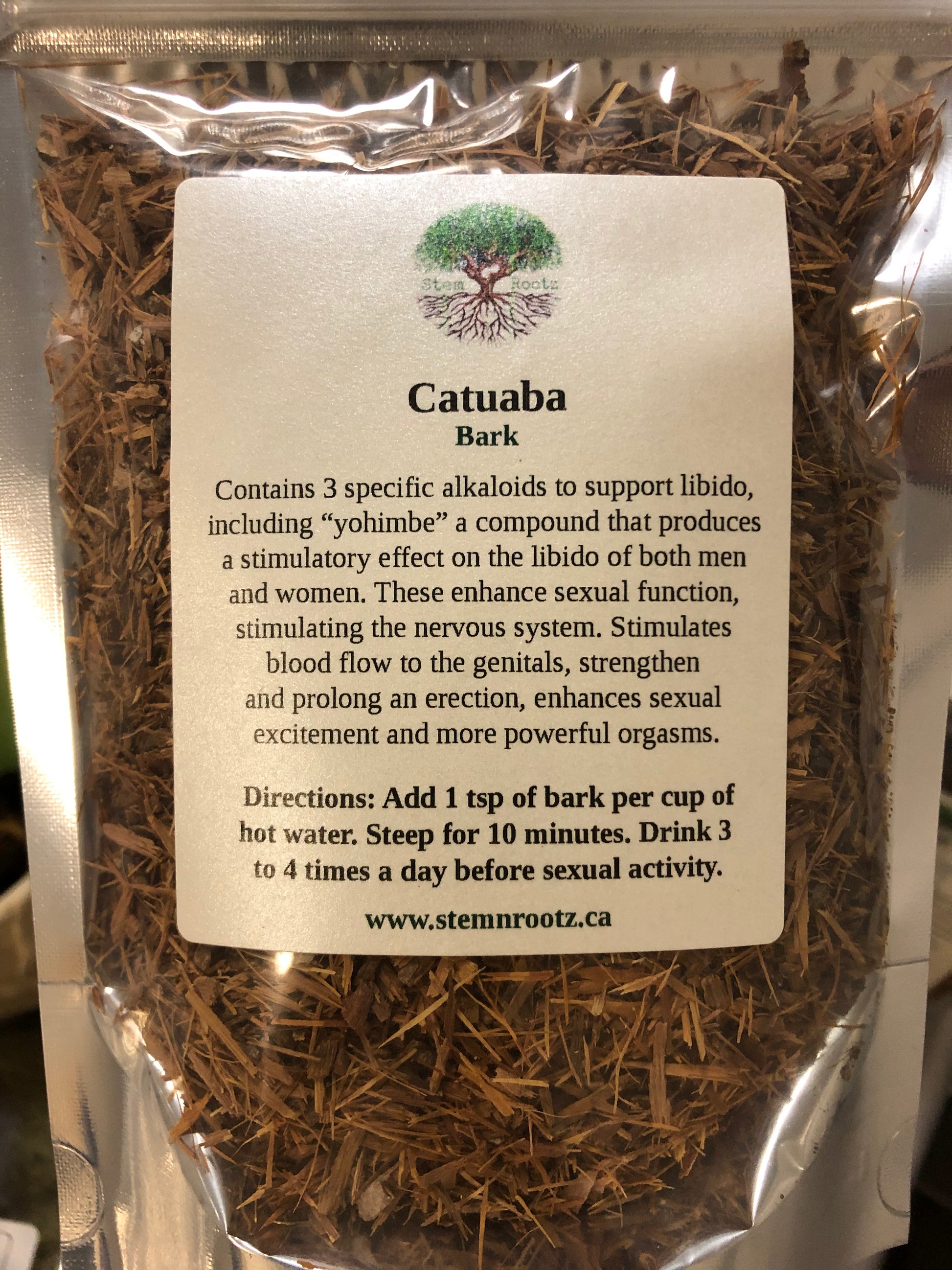Stem n Rootz
Catuaba Bark
Catuaba Bark
Couldn't load pickup availability
Catuaba Bark is a traditional herbal remedy known for its ability to support energy, cognitive function, and overall vitality. Commonly used in Brazilian herbal medicine, catuaba is valued for its natural aphrodisiac properties, helping to enhance libido and promote reproductive health. It is also known for its adaptogenic benefits, which help reduce stress, improve mood, and support nervous system function.
Key Benefits:
-
Supports natural energy and cognitive function
-
Enhances libido and reproductive health
-
Promotes stress reduction and nervous system balance
-
100% pure, loose-cut herbal remedy with no additives or fillers
How to Use:
Steep one teaspoon in hot water for 10–15 minutes to make a stimulating herbal tea, or incorporate into tinctures for long-term vitality support.
Ingredients:
100% Pure Catuaba Bark.
Disclaimer:
Always consult with your healthcare provider before starting any new herbal regimen, especially if pregnant, nursing, or managing health conditions.


